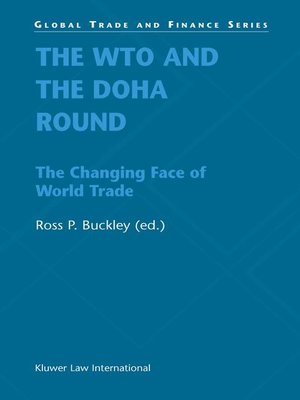The WTO and the Doha Round
ebook ∣ The Changing Face of World Trade · Global Trade & Finance Series
By Ross P. Buckley

Sign up to save your library
With an OverDrive account, you can save your favorite libraries for at-a-glance information about availability. Find out more about OverDrive accounts.
Find this title in Libby, the library reading app by OverDrive.



Search for a digital library with this title
Title found at these libraries:
| Library Name | Distance |
|---|---|
| Loading... |
The appointment of Dr. Supachai Panitchpakdi as Director-General of the World Trade Organization in 2002 reflects the changing power realities within the WTO. Coupled to this is the growing sense among developing countries that they have been cheated in the way the Uruguay Round commitments have been implemented and a return to unilateralism by the U.S.. The world trading system thus stands at a crossroads. The success of the current Doha Round of trade negotiations hangs in the balance. This volume examines various ways in which the WTO might be reformed or improved and the chances of success in the Doha Round thus enhanced.
The WTO has an important role to play in managing globalization so that its benefits are shared far more equally among individuals than is today the case. This challenge must be met if we are not to slide backwards into a less interdependent, and far poorer, world.
Among the specific issues researched and analyzed here are:
It will quickly be observed that this book represents an approach to world trade theory that will not be welcome in all circles. Yet few will deny its enormous value as a "reality check." No concerned policy maker, official or academic can afford to ignore it.







